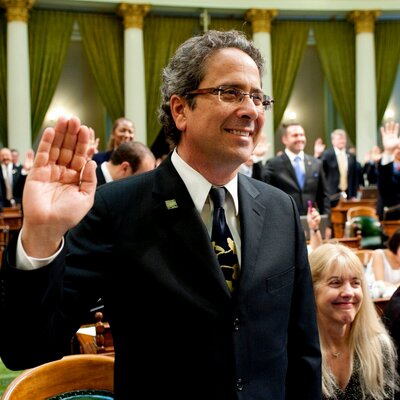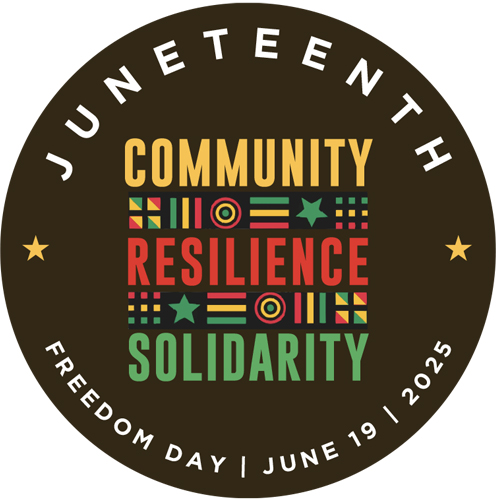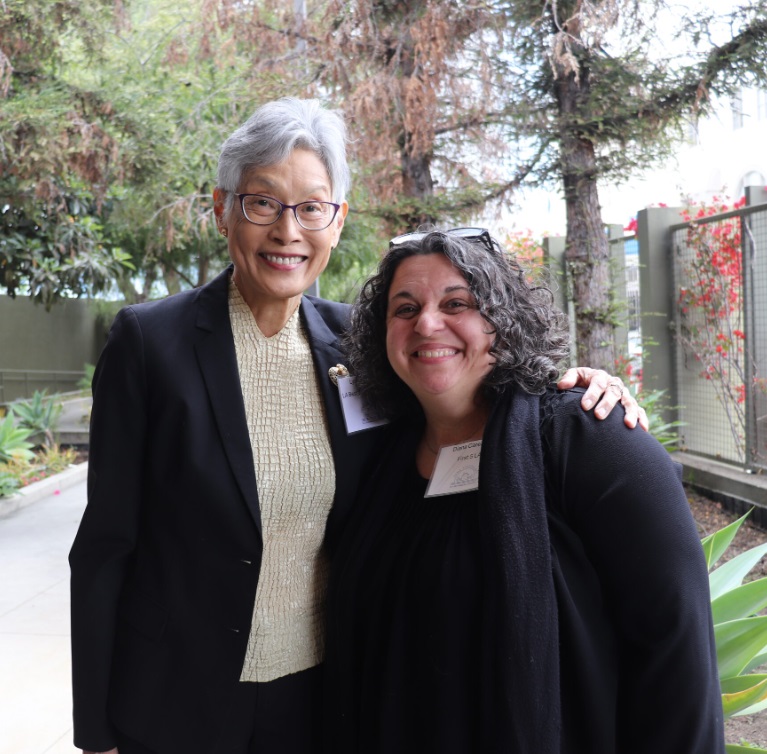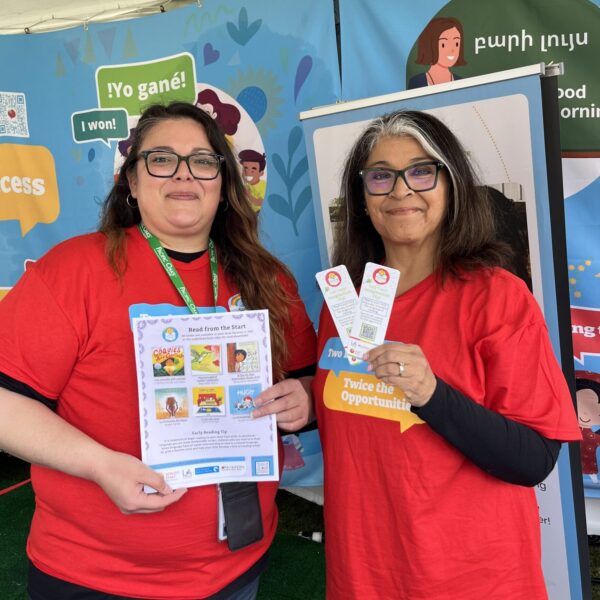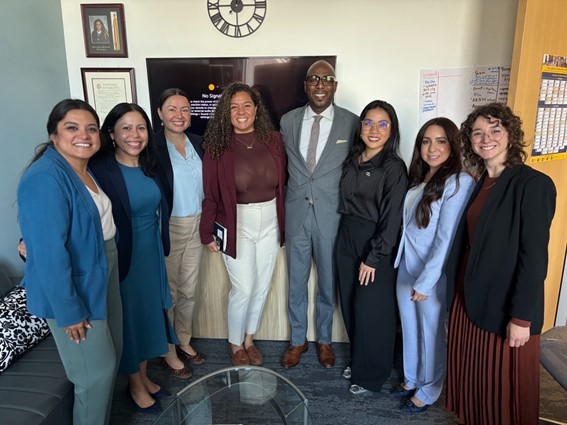For Assemblymember Richard Bloom (D-Santa Monica), helping children and their families is, well, a family affair.
“My oldest brother is a physician in family practice, treating families and lots of children,” said Bloom, who was born in Philadelphia and raised in Altadena and West Los Angeles. “My other brother works with children in the community and my sister became a teacher in special education and her not-so-little specialty is deaf infants and their families. And then there was me and I ended up professionally in family law practice with a pretty strong emphasis in handling high-conflict child custody cases.”
Even as he was practicing family law and leading a nonprofit that assisted low-income and homeless clients, Bloom’s career helping families and children blossomed in the field of politics. He began in 1999 on the Santa Monica City Council, where he served for 13 years and as mayor three times. He was elected to the California State Assembly in 2012, where he was appointed to the Chair of the Assembly Budget Subcommittee on Resources and Transportation.
Many of Bloom’s legislative priorities and accomplishments are aimed at enhancing the quality of life now and for future generations, often benefitting young children and their families in Los Angeles County and statewide:protecting the environment and parks, improving public school funding and outcomes, combating climate change, addressing homelessness, providing affordable housing and relieving congestion by investing in public transit, bike and pedestrian improvements.
Recently, Bloom gave an interview that offered insights into his early influences and career choices, reflected on his local and statewide successes impacting kids, and shared his legislative priorities for young children and families in the Golden State.
Q. Growing up, who was your champion for children?
A. I suppose it must have been my parents and my grandparents. I’m the youngest of four kids, so I come from a relatively large family. My parents obviously like kids, or at least having them (laughs).
I grew up in my earlier years in Altadena. I was painfully shy as a kid. Most of my socialization was at school and at our synagogue rec center, particularly in the summer, because there was a swimming pool and gymnasium there.
Then, when I was an adolescent, we moved to West Los Angeles. I was in 9th grade. It was a really big deal for me because it came at a time when, you know, you’re feeling accepted by your peers. I had established relationships in Altadena and now I had to reestablish them again in a new place.
My parents bought their first home in West LA, a house with a swimming pool. They wanted that pool because they felt that our friends would want to be there. It was a really big deal for my mom to have her home be a center of life for us. She wanted our home to be the place that everybody came to. And that’s what happened. So somehow, it all worked out and I think that’s partly due to, you know, my parents wanting to have our home be a center of our universe. It’s a little sentimental, but cool.

Q. What led you into the legal field?
A. That was my dad. When I was in college, I started at UCLA with no major and transferred to Cal as journalism major and then became a communications and public policy major. So my dad said, “What do you want to do?” And I said, “I don’t really know. I know I’m not going to be an engineer, Dad, because, you know, I nearly flunked out of 8th grade math.” My dad was an engineer and I was an endless source of frustration to him because he was able to do calculations in his head or pull out a slide rule. He was quite an accomplished individual and a role model for me. So he said, “Why don’t you go into law school? Because if you go into law school, you don’t have to decide now and there are a lot of things you can do as a lawyer.”
So I took his advice. Towards the end of law school,I still didn’t know really what kind of a lawyer I wanted to be. I went to a seminar entitled, ‘How to open your own law practice’ and because my dad was kind of an entrepreneurial spirit, somehow it resonated with me that I could be a legal entrepreneur. So I opened my own practice right out of law school.
Economically, it was, probably, you know, a really stupid thing to do. But I did it. And typically when you do something like that, you have to take whatever comes your way. And divorces and child custody cases aren’t everybody’s cup of tea. So a lot of lawyers who do other kinds of law would send me those cases and that’s how I fell into family law. I found that it was a good fit even though I can tell you I saw some really hard things.
Q. Were any of the things that you saw an impetus for you to want to enter politics?
A. Indirectly, yes. I entered politics as a part-time elected official on the Santa Monica City Council and had to keep up my law practice at the same time. Eventually that just became too much and I was much more enamored with doing the the public’s business than practicing law. By that time,I’d been in it for 25, 30 years and some of those tough cases start to take a little piece out of you over time. And my wife was really ready for me to leave the practice of law.
But over the course of a career, one of the things about family law is that you have to learn. One day a client might come in who is a plumber. Then you have to learn a little bit about that business. Similarly in handling child custody cases, you have to learn about the different stages of life and growth and healthcare and special education needs and you name it. As a lawyer, over time, it’s kind of an education about the issues that face children, sometimes in a not very pretty way.
It’s similar to being a legislator because you have to learn about everything. Here in the legislature, we have every possible issue that we legislate or budget around.
So this dovetails very well with some of the things that I started to do when I was elected to the city council. One thing that immediately comes to mind is our Cradle to Career effort in Santa Monica, which was an effort to provide a more seamless approach to funding and addressing the issues of children in the community and thinking of it as a continuum. And one of the things we spent a lot of time talking about and understanding around early childhood education was the need to address toxic stress that children experience at an early age. Well, guess what? Divorces and domestic violence and all the issues that we see bubbling up in the family law world are the things that contributed to that toxicity that can affect children’s outcomes later in life. So when we started talking about that in Santa Monica, it resonated with me on a professional and a legislative level.
Q. Did your learnings as a family law practitioner and experiences with the Santa Monica City Council naturally evolve into some of the work that you’ve done in the Assembly?
A. As we get older, I think virtually every person I know who is in public life — and even outside of public life — our life experiences are what guide us to make decisions. That’s a lens that’s very important. But it’s important that not be the only lens. Because I think we can get carried away by our own experiences and sometimes make the wrong decision because of something that personally affected us early on. So when one is a legislator, you know, it’s your life experiences — and what you learn and the information that you get from your staff and from outside sources — that are all important in forming opinions and making decisions.
Q. What are you most proud of in the Assembly in past legislation or budget allocations for children and families?
A. There’s a list of items we’ve done in the budget. My area of specific budget oversight is transportation and natural resources. One might think, “Oh, well, those have nothing to do with kids.” The reality is they have everything to do with kids. Because having an effective transportation system — the ability for people to transport their children from one place to another —is extremely important. In the natural resources world, there are a number of places where that touches the lives of children. For example, expanding our parks and making sure that children who live in urban areas and children from a poor background are able to access in our national, state and county parks. There are so many children even today who have never seen a national park or who spend little or no time in our state parks or at the ocean. And we’ve done quite a bit of funding to change that dynamic.
Then in serving on the budget conference committee and taking our lead from Gov. Brown and the Assembly Speaker —who is a great champion of children’s issues — we’ve done additional investment in CAL WORKS, we’ve repealed the maximum family grant, we significantly increased our Medi-Cal spending to over $100 billion now, we’ve increased our child care funding and increased the child care reimbursement rate.
We haven’t done nearly what we need to do on childcare and early childhood education, which is a tough one, because it’s so expensive. But we have added 58,000 childcare slots. And that’s a big deal for each of those children. In my mind, when we’re not able to fund everybody, I like to think about the children we are able to fund. And for them, this is a godsend and extremely important to their future outcomes.

Photo Courtesy of Richard Bloom’s Twitter @RichardBloom
Q. One of your priorities is housing and homelessness. How does this relate to children?
A. For me, there are three issues that I’ve spent a lot of time working on, and the first two are related: housing and homelessness. And then health care, including mental health care. All of them are essential for the social, emotional and physical development of children. So housing is something that I prioritize. I’m sure you know that Santa Monica has been a leader on affordable housing and providing housing. I think it should go without saying that to be homeless or to live in substandard housing is one of the worst circumstances one can imagine for children.
And by the same token, the housing affordability crisis is problem enough for seniors who can’t afford their housing and for millennials. Both of those categories, for the most part, don’t have children living at home. So it’s not essentially just a child issue. But for every family who is faced with a rent increase, but their income isn’t going up, that constitutes a diminishment of their quality of life. And so it means they can’t take that trip to the beach or maybe it’s a little less food on the table.The economic pressures that are facing families in California are a critical component of the income disparity that we see growing in the state, which is a great concern.
Q.How do these priorities fit into your legislative goals? Do you have a wish list of legislative and district goals for young children and families?
A. Let’s get on with what my agenda is going to look like over the next year or two. I’m very gratified that Gov. Newsom has stated that he is going to prioritize children. For me, addressing homelessness among youth is a very important priority. I would say we’ve done a reasonably good job in recent years in terms of addressing the issues of homeless veterans. We should take a similar approach on homeless youth.
One of my ongoing issues or battles is establishing a fund to address health prevention in the health care world. California spends very little money on prevention. The healthcare crisis that we face in terms of the cost of healthcare is largely based in our inability to control costs. One of the drivers of cost is the increase in obesity and the causes of obesity and heart disease, diabetes and other illnesses. And one of the biggest drivers of that is the over-consumption of sugar and, specifically, sugar-sweetened beverages.
So providing a fund to address the prevention in a way that we know can be successful —funding healthcare clinics, school nurses, and mechanisms to address — particularly among our young population — a healthier diet and more exercise — are all critically important and basically unfunded in the state. So the creation of a Healthy California Fund that would address those issues is of critical importance. My proposal is the only concrete proposal that I’m aware of to actually create a funding source. I’m looking forward to moving that forward.
Then I have one smaller bill, but it’s critically important for the kids who are affected by it every year.And that’s the need to require all health insurance policies to cover hearing aids for children. Medi Cal covers hearing aids, most health insurance policies cover them, but there are a number of health insurance policies that do not cover them. For the folks who have those policies, about 8,000 families have to spend $5,000 to outfit a child with an essential hearing aid. For folks who can’t afford the $5,000, those children — about 200 of them every year —are left out and face terrible outcomes. So that’s one of my ongoing goals. This is the third or fourth year we’re going to try to get that bill passed. I’m optimistic that the governor is going to be empathetic on this issue.
This is a good way to close out the discussion and bring it full circle. My sister just retired a few years ago as the head of the infant deaf program at Los Angeles Unified School District. L.A. Unified actually has a department with several people who address the special education needs of the deaf community. And many of them are infants. And that’s what Lydia did. She was responsible for the infants. And she’s the one who came to me and said, “You’re a legislator. Do something about this, Richard.”
